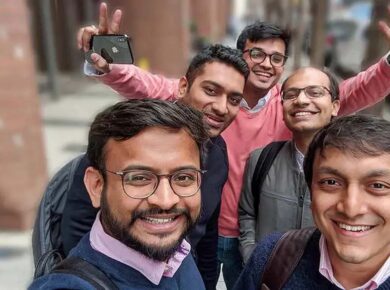South Korea’s burgeoning tech startup ecosystem is often compared to Silicon Valley, but it grapples with persistent challenges rooted in traditional workplace cultures, as highlighted in a recent report by The Economist.
The Challenge of “Gapjil”
At the heart of South Korea’s workplace culture is the concept of “gapjil,” encompassing practices like compulsory drinking sessions, extensive working hours, and weekend work. Beyond these norms, “gapjil” signifies a disregard for safety and an abuse of authority, with prestigious family-owned conglomerates, known as “chaebol,” such as Samsung and Korean Air, being infamous for fostering intense work environments.
Pursuit of Change
In contrast, newer tech players like Kakao and Naver are striving to break away from the “gapjil” culture. Emulating Silicon Valley’s ethos, these companies advocate for meritocracy, flat organizational structures, and flexible work arrangements. However, despite these efforts, employees report feeling overwhelmed by heavy workloads and a lack of communication.
Allegations and Backlash
The Economist’s report sheds light on alleged instances of workplace abuse within South Korean startups, with delivery giant Coupang drawing significant attention. Despite being hailed as the “Amazon of South Korea” with a valuation of $74.6 billion, Coupang faced scrutiny following a warehouse fire that resulted in the death of a firefighter. Concerns about workplace safety and employee treatment have since been raised by lawmakers and local media.
Addressing Concerns
Coupang has faced criticism over the deaths of six employees, with allegations of overwork leading to fatal heart attacks. While the company asserts that its disease mortality rate is below the national average, unions and lawmakers have called for better workplace conditions and oversight. Coupang maintains that it prioritizes employee safety, citing its evacuation efforts during the warehouse fire and ongoing fire safety protocols.
Public Perception and Resilience
A survey conducted by R&R Consulting revealed widespread concerns among Korean adults regarding “gapjil” in the workplace. Over 83% of respondents viewed it as a serious issue, yet many felt resigned to enduring these challenges. The findings underscore the entrenched nature of traditional workplace dynamics and the uphill battle for meaningful reform.
As South Korea’s startup landscape continues to evolve, addressing deep-rooted workplace issues will be essential for fostering a supportive and sustainable environment conducive to innovation and growth.









